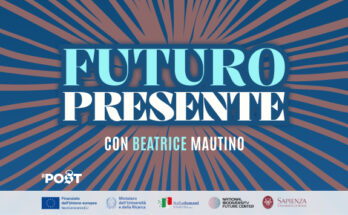The cut in public funding for research in the United States and President Donald Trump’s administration’s threats to elite universities open up a unique opportunity to attract talent to Europe, especially when taking into account that a significant percentage of researchers working in the United States were not born in that country, but have settled there thanks to the excellence of its universities and research centers.
This opportunity has not gone unnoticed in the European Union. The Choose Europe for Science initiative announced on May 5 by the President of the European Commission, Ursula von der Leyen, together with the President of France, Emmanuel Macron, clearly goes in this direction. In his words, “Europe has made its decision: to put science and technology at the center of its economy, to let innovation be at the service of humanity, embrace global talent and transform universities into pillars of society.” For starters, the European Research Council then announced increased funding for researchers moving to Europe.
Spain is an attractive country and, in some areas, has internationally renowned research centres. However, to take advantage of this opportunity and give decisive impetus to border investigations, it is necessary to do more than passively wait for the arrival of those targeted by the US administration. Increasing the funding of the ATRAE program of the Ministry of Science, Innovation and University is certainly desirable, but the net remuneration that this program offers to an established researcher (applying the 24% tax rate of the Special Tax Regime for Posted Workers in Spain, known as Beckham Law) does not reach 100,000 euros per year, a figure much lower than what they probably receive now.
The proposal is simply to imitate what other countries are doing to increase the attraction of talent, in particular the Italian model. Article 44 of legislative decree no. 78/2010 established a facilitated tax regime, of a temporary nature, for professors and researchers who transfer their tax residence to Italy, according to which only 10% of the work income is taxed in the tax period in which the residence is transferred and in the following five; exemption which is extended from 2020 up to 13 periods in the case of taxpayers with dependent minor children. Therefore, professors and researchers covered by this rule are practically exempt from paying income tax in Italy for a period of at least five years.
It should be noted that this provision was introduced by a centre-right government and has been maintained with center governments, such as those of Mario Monti and Mario Draghi, and with centre-left governments, such as those of Enrico Letta and Matteo Renzi. In other words, in Italy there is political agreement on the importance of attracting talent.
Introducing a similar rule in Spain would have very significant effects on our ability to compete effectively with other countries, including Italy, for the attraction of the best researchers. Regarding the fiscal cost of the proposal, it would be desirable to adopt a life cycle perspective. It is true that, during an initial period, professors and researchers under the special regime would pay practically no direct taxes, but they (and their families) would pay indirect taxes plus the corresponding social security contributions, and that, after this initial period, they would move to the general tax regime, contributing to the public treasury like the rest of the citizens. Furthermore, the experience of ICREA (Catalan Institute for Research and Advanced Studies) demonstrates that these researchers would be able to finance a significant part of the contractual costs with the European funds that will be allocated to research in the coming years.
The proposal is in line with the recommendations of the White Paper on Tax Reform 2022: “The Committee believes that Spain should strengthen its special regime for posted workers with the aim of making it more competitive compared to other special regimes existing in neighboring countries, but without moving away from the purpose for which it was created and justifies it, namely the attraction of qualified human capital to Spanish territory.”
If the rule were limited, as in Italy, to teachers and researchers, its cost on a macroeconomic scale would be negligible, and its benefits, in terms of promoting research and innovation, could be very significant. In the field of science, teams of researchers capable of advancing the frontier of knowledge make an extraordinary contribution not only to the scientific ecosystem, but also to the economy and society that hosts them. Therefore, it is justified, from the point of view of the general interest, to use tax credits to attract them.
Training a frontier researcher is a very expensive process with a considerable degree of risk. The opportunity to attract qualified researchers with a track record and portfolio of excellent projects cannot be missed.



